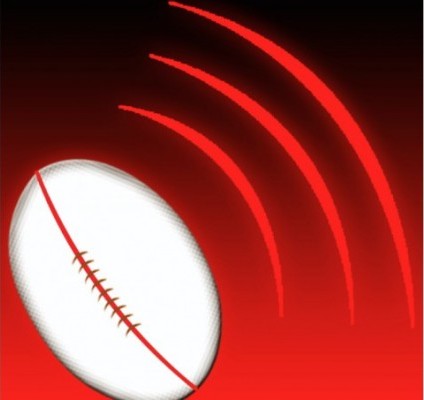Tough Competition on Horizon as Daines Examines Women's Pathway
Tough Competition on Horizon as Daines Examines Women's Pathway
At the WRCRA Conference in Virginia Martha Daines, the USA Rugby Women’s High Performance Pathways Manager, was one of eight to receive a lifetime achievement award, but to talk to her what you hear is about the future, not the past.
A giant in coaching circles, and before that in playing circles, Daines now has the job of overseeing how the USA team will look some years down the road. She isn’t shy about identifying problems now, and in one presentation at the Conference, she mapped out some of the issues coaches have seen with the Eagles.
Such as … fitness, executing technical skills, execution of skills under pressure, recognizing opportunities, and managing space.
It’s about quality of coaching when players are just starting out, and it’s about players demanding more of themselves.
It is a bit quick, she added when speaking with GRR, to assume all of that was an indictment of the recent 15s World Cup.
“I think we would all have liked to outcome to be different,” Daines told GRR. “I think some of the things in that analysis came from the World Cup and a lot were things we’ve identified for a while. This is a long-term understanding of what our strengths and weaknesses.”
All of that comes down to tough competition. Since Daines is looking ahead, she is thinking about the U23 level and looking for players who could contribute in the 2025 15s World Cup, and ahead to 2029 and 2033 in the USA.
Pointed out by Berkeley All Blues Head Coach Hannah Stolba at the Conference was the fact that the peak for women’s players is likely older than the peak for men, and women can generally also hold onto their peak longer—so a 25-year-old player now could easily be a major contributor to the USA team in 2033. This also means that Daines could be working with players who pay senior rugby dividends far down the road.
Tougher Competition
“I am trying to work now to develop some competition structures and just expand what we’re doing with all-star competitions, provide more opportunities for club players, help the WPL however we can,” Daines explained. “But that set of competitions has to be more robust in order for players to develop skills and the adaptability that we really need.”
The first iteration of all of that was the U23 All-Star tournament. Daines set up an open application process for that to get around what she dubbed “no TU, fractured government structures.”
So she wanted to see who was interested, whether it was National Development Programs or conferences or Geographical Unions. It turned out to fall into some geographical regions. The Midwest jumped at it because that region never fully abandoned all-star play (whether run by a union or by energetic individuals). Eight teams participated, and of the 180 players who were in the competition, about 150 had not been on the pathway radar.
They were players who had been on college teams that didn’t win a lot, or they were players who had skipped college rugby altogether. Many ended up on the U23 trip to Canada, a tour that was initially hoped to be a USA vs Canada series but ended up being Queen’s University and the University of Ottawa.
The U20s were overmatched against much older competition, but the U23s were more competitive.
But getting those players a chance to play tough games was important.
Finding That DTE
“The goal is to try to capture those late entry athletes because they have the potential to be better athletes in general because they’ve ben playing other sports,” explained Daines. On tour, she said, the players “learned a lot in a very short amount of time.”
And some showed well. Daines is working to place those players in NDPs, specifically Rhino Rugby Academy, to develop them.
“We don’t have enough face-to-face time within the pathways so we need those daily training environments and to make those as robust as possible.”
Players and coaches need competition opportunities going forward. Daines has been campaigning for some high-end development competitions and certainly the High Performance Review within USA Rugby will have something to say about that.
The obvious answer is to partner with Canada in some way.
More Plans In The Works
Cost remains an issue. That’s why there was no winter camp this year—the cost to fly to San Diego was prohibitive. As a result Daines is mapping out a regional camp plan where the events are within driving distance. This could expand the pool of players at the U18 and U23 level, and could also expand opportunities for coaches, seeing as the same coaches can’t do all of these camps.
This is all part of a list of ideas that Daines is working on. She wants to specifically develop tight five players in part to counter the proliferation of 7s in high school rugby. She is trying to address costs. She is looking for elevated competition.
It’s all about that execution of skills under pressure














